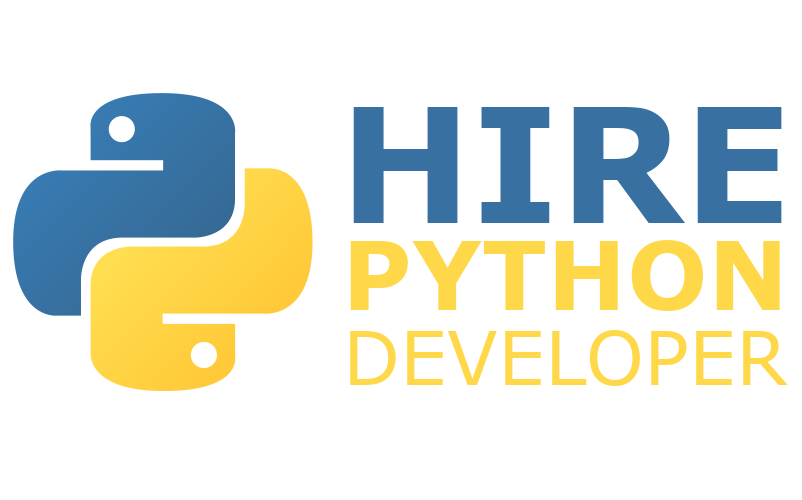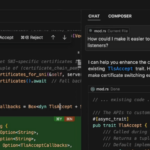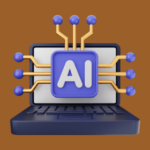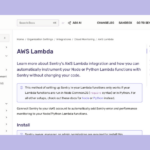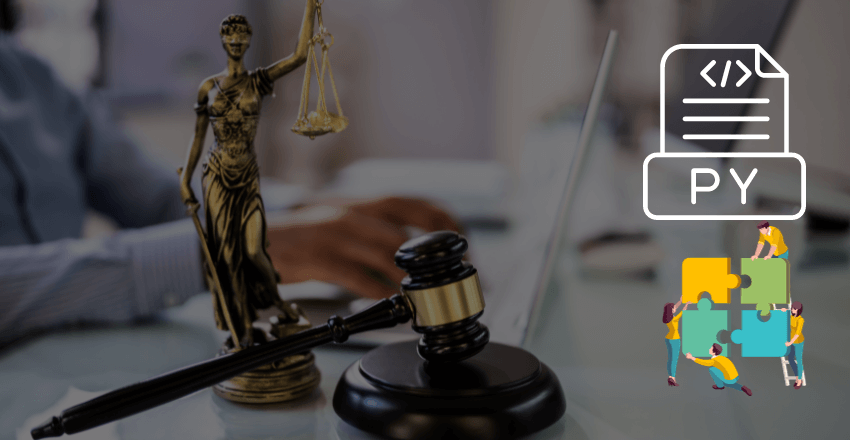 The legal industry is increasingly turning to technology to streamline its processes, reduce costs, and offer better services to clients. Python, an open-source programming language, has emerged as a leading solution for legal tech.
The legal industry is increasingly turning to technology to streamline its processes, reduce costs, and offer better services to clients. Python, an open-source programming language, has emerged as a leading solution for legal tech.
Python for legal industry has many advantages, including its flexibility, versatility, and speed of development. Python legal tech solutions can help automate repetitive tasks, analyze data, and ensure compliance with regulatory requirements. The potential of Python in the legal industry is vast.
Building Legal Tech Solutions with Python
Python is a versatile programming language that enables developers to create innovative legal tech solutions. Its ease of use, readability, and large community support make it an ideal choice for legal innovation. Python’s popularity has led to the emergence of several frameworks that cater to specific use cases within the legal industry.
| Framework/Language | Advantages | Limitations |
|---|---|---|
| Flask | – Lightweight and flexible – Easy to use and learn – Extensive documentation | – Limited scalability – Limited built-in functionalities |
| Django | – Robust and scalable – Built-in ORM and admin panel – Large community support | – Steep learning curve – Limited flexibility |
| JavaScript | – Widely used in legal tech – Suitable for creating front-end applications – Large community support | – Limited back-end functionalities – Steep learning curve for non-web developers |
Code examples can illustrate Python’s programming concepts and features. For example, the following code snippet shows how to create a simple Flask web application:
from flask import Flask app = Flask(__name__) @app.route('/') def index(): return 'Hello, World!'
The above code creates a basic web application that displays “Hello, World!” on the homepage. Flask’s simplicity and flexibility make it a great option for creating lightweight web applications for legal use cases.
Industry trends also demonstrate the potential of Python for legal innovation. Research conducted by the Legaltech Association of Japan shows that Python is the most commonly used programming language among legaltech companies in Japan. The study also found that Python is becoming increasingly popular for creating machine learning and natural language processing solutions.
Python vs Other Frameworks/Languages in Legal Tech
Python has been gaining popularity in the legal tech industry due to its flexibility and versatility. However, it is not the only programming language or framework available for legal tech solutions. Other frameworks and languages, such as Ruby on Rails and Java, have their own advantages and limitations.
One advantage of Python over Ruby on Rails is its simplicity and ease of use. Python’s syntax is straightforward and readable, making it a popular choice for beginners and experienced programmers alike. Additionally, Python has a vast range of libraries and frameworks designed for data analysis and scientific computing, such as Pandas and NumPy.
| Python | Ruby on Rails |
|---|---|
| Simplicity and ease of use | Convenient for web development |
| Supports scientific computing and data analysis | Large community and resources available |
On the other hand, Ruby on Rails is a popular framework for web development, with a large community and resources available. It is convenient for building web-based legal tech solutions, particularly for small to medium-sized projects.
Java, another widely used programming language, has its own advantages for legal tech solutions. It is known for its reliability, scalability, and security, making it a popular choice for enterprise-level projects. However, Java can be more complex and challenging to learn compared to Python or Ruby on Rails.
| Python | Java |
|---|---|
| Simplicity and ease of use | Reliability and scalability |
| Supports scientific computing and data analysis | Secure and suitable for enterprise-level projects |
When selecting the most appropriate language or framework for a legal tech project, it is essential to consider the specific requirements, size, and complexity of the project. Python, Ruby on Rails, and Java are just a few of the options available, and each has its own strengths and limitations. By understanding the differences and comparing the programming concepts and features, legal professionals can make an informed decision and choose the most suitable solution for their needs.
Enhancing Efficiency with Python Legal Tech Solutions
Python has proven to be a valuable tool in enhancing efficiency in the legal tech industry. Its flexibility and versatility make it suitable for automating repetitive tasks, streamlining workflows, and integrating with existing systems.
For instance, Python can be used to automate the process of document review and analysis. By using natural language processing techniques, Python can analyze large volumes of legal documents, extract relevant information, and provide insights to the legal team. This not only saves time but also reduces the risk of errors associated with manual document review.
Another example is the use of Python for contract management. By developing customized contract management solutions using Python, legal professionals can track contract lifecycle, monitor key dates and obligations, and generate alerts when needed. This leads to more efficient contract management and reduces the risk of missing critical deadlines or obligations.
Python legal tech solutions also offer integration possibilities that enhance efficiency. For instance, Python can be integrated with other software solutions used in legal practice, such as practice management systems, billing software, or electronic document management systems. This allows for seamless data transfer and reduces the need for manual data entry.
Overall, Python legal tech solutions are a powerful tool for enhancing efficiency in the legal industry. By automating repetitive tasks, streamlining workflows, and integrating with existing systems, legal professionals can focus on higher value tasks, improving both efficiency and productivity.
Ensuring Compliance with Python Legal Tech Solutions
In the legal industry, ensuring compliance is critical to avoid legal and reputational risks. Python legal tech solutions can assist in managing regulatory requirements, data privacy, and security.
One example of how Python can aid in compliance is through natural language processing (NLP). NLP can analyze contracts or legal documents to identify potential compliance risks. For instance, it can flag clauses that do not comply with data privacy regulations or do not align with industry standards.
| Python | Alternative Frameworks/Languages |
|---|---|
| Python offers various NLP libraries, such as spaCy and NLTK, that can be leveraged to analyze legal documents for compliance. | Alternative frameworks or languages, such as R or Java, may have NLP capabilities, but require more coding and may not be as flexible as Python. |
Another area where Python can assist in compliance is through automation. Compliance tasks, such as risk assessments or regulatory reporting, can be automated using Python. This reduces the risk of errors and ensures consistency in compliance activities.
Python legal tech solutions can also enhance security measures in the legal industry. For instance, Python can be used to develop software that encrypts sensitive data, or to monitor cybersecurity threats and mitigate potential breaches.
Overall, Python legal tech solutions can aid in managing compliance risks and maintaining regulatory standards. By leveraging Python’s capabilities in automation and analytics, legal professionals can ensure compliance in an efficient and effective manner.
Empowering Decision-Making with Python Legal Tech Solutions
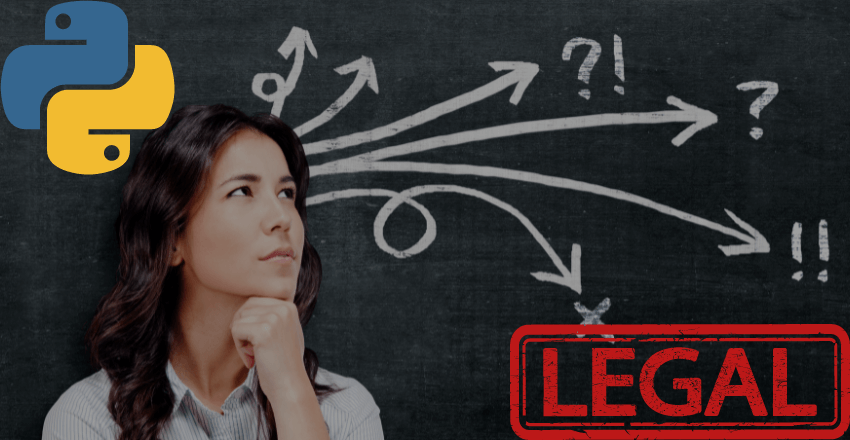
Python is increasingly gaining attention in the legal industry due to its powerful capabilities in data analytics, predictive modeling, and visualization. With Python, legal professionals can make informed decisions based on data and trends, ultimately improving their practice’s efficiency and effectiveness.
One of the key advantages of Python for decision-making is its flexibility and versatility. Python has numerous libraries and frameworks, such as NumPy and Pandas, that offer powerful data analysis and manipulation tools. Furthermore, Python integrates smoothly with other technologies, such as machine learning and natural language processing, that can enhance decision-making capabilities.
For instance, legal professionals can use Python to analyze vast amounts of legal data, such as case law and contracts, to identify patterns, trends, and potential risks. Python-powered predictive modeling can also assist in predicting case outcomes or identifying areas for process improvement. Additionally, Python’s visualization capabilities, such as matplotlib and seaborn, allow legal professionals to present complex data in a simple and intuitive manner.
Here’s an example of how Python can be used to analyze legal data:
# Import pandas library
import pandas as pd
# Load legal data into a dataframe
legal_data = pd.read_csv('legal_data.csv')
# Calculate frequency of case outcomes
outcome_counts = legal_data['outcome'].value_counts()
# Plot outcomes on a pie chart
import matplotlib.pyplot as plt
plt.pie(outcome_counts, labels=outcome_counts.index)
plt.title('Case Outcome Distribution')
plt.show()By leveraging Python’s data analysis, modeling, and visualization capabilities, legal professionals can obtain valuable insights that can inform and improve their decision-making processes.
Addressing Challenges in Legal Tech with Expert Python Solutions
As the legal tech industry continues to grow and evolve, new and unique challenges are emerging. However, with the help of expert Python solutions, these challenges can be addressed effectively. Python’s flexibility and versatility allow for the creation of tailored solutions that can tackle complex legal tasks with ease.
Contract Analysis
One major challenge in the legal industry is contract analysis. Reviewing and analyzing contracts is a time-consuming task that requires a great deal of attention to detail. However, with Python legal tech solutions, this process can be automated and streamlined. For example, the Natural Language Toolkit (NLTK) in Python can be used to extract relevant information from contracts and identify potential risks or discrepancies.
| Traditional Contract Analysis | Python Legal Tech Solution |
|---|---|
| Manual review of contracts | Automated contract analysis using NLTK |
| Potential for human error | Increased accuracy and efficiency |
Legal Research
Legal research is another challenge that Python legal tech solutions can address. Traditional legal research is a time-consuming and labor-intensive process that requires significant resources. However, Python libraries such as LexNLP and CaseLawAccessProject can be used to automate legal research and extract relevant information from legal documents.
| Traditional Legal Research | Python Legal Tech Solution |
|---|---|
| Manual review of legal documents | Automated legal research using Python libraries |
| Time-consuming and labor-intensive | Increased efficiency and accuracy |
Document Management
Document management is a challenge that affects many industries, including legal. The sheer volume of legal documents can be overwhelming, and it can be difficult to keep track of everything. However, with Python legal tech solutions, document management can be streamlined and organized. For example, Docassemble is an open-source document automation platform that allows for the creation of complex legal documents with ease.
| Traditional Document Management | Python Legal Tech Solution |
|---|---|
| Manual organization of documents | Automated document management using Docassemble |
| Potential for lost or misplaced documents | Increased organization and accessibility |
These are just a few examples of how expert Python solutions can address challenges in the legal tech industry. By leveraging the power of Python, legal professionals can work more efficiently, accurately, and effectively.
Python Legal Tech Solutions: A Practical Implementation Guide
To begin developing Python legal tech solutions, it is helpful to follow a structured approach that considers the specific requirements of the legal practice. The following steps can serve as a guideline:
- Evaluate the use case: Determine the problem or task that the Python solution should address. Research existing legal tech solutions and assess whether Python offers a suitable alternative or enhancement.
- Select relevant frameworks: Identify the frameworks that can best support the development of the Python solution. Consider factors such as compatibility with existing systems, ease of use, and community support.
- Define functional specifications: Specify the requirements and features of the Python solution in detail. Use diagrams or flowcharts to visualize the data and process flows.
- Write code: Start developing the Python solution by writing code that adheres to the functional specifications. Use best practices for code quality, such as modularization and documentation, to ensure maintainability.
- Test and debug: Validate the Python solution by testing it against the functional specifications and edge cases. Debug any errors or issues that arise.
- Deploy and integrate: Deploy the Python solution in the target environment and integrate it with the existing systems. Monitor the performance and provide necessary updates or maintenance.
By following these steps, legal professionals can develop effective Python legal tech solutions that enhance their practice’s efficiency, compliance, and decision-making.
Overcoming Potential Challenges in Python Legal Tech Solutions

While Python is a versatile and powerful programming language, there are potential challenges that may arise when implementing legal tech solutions. Here are some strategies to overcome these obstacles:
Optimizing Performance
Python is an interpreted language, which means it may not perform as quickly as compiled languages like C++. To optimize performance, consider using tools like Numba or Cython to compile Python code for faster execution. Additionally, using parallel computing techniques like multiprocessing or distributed computing can help speed up processing times for large datasets.
Handling Large Volumes of Data
Python is known for its simplicity and ease of use, but it may not be the most efficient choice when handling large volumes of data. To overcome this challenge, consider using specialized data processing libraries like Apache Spark or Apache Hadoop. These frameworks are designed for handling big data and can be integrated into Python workflows seamlessly.
Addressing Compatibility Issues
Python is a popular language, but it may not be compatible with certain hardware or software environments. To address compatibility issues, ensure that you are using the latest version of Python and any required libraries. Additionally, consider using containerization technologies like Docker or virtual environments to isolate Python code and dependencies from other system components.
By considering these potential challenges and implementing the appropriate strategies, legal professionals can successfully overcome obstacles in implementing Python legal tech solutions and take full advantage of Python’s capabilities.
Conclusion: Embracing Innovation with Python Legal Tech Solutions
Python legal tech solutions are rapidly transforming the legal industry. With its versatility, flexibility, and user-friendly design, Python has become the go-to programming language for innovative legal tech solutions. Embracing Python can help streamline workflows, improve efficiency, ensure compliance, and empower decision-making for legal professionals.
FAQ

Q: What are Python legal tech solutions?
A: Python legal tech solutions refer to the use of the Python programming language to develop innovative technology solutions in the legal industry. These solutions can range from automation tools to streamline workflows, data analytics for informed decision-making, compliance management systems, and more.
Q: Why is Python popular in the legal tech industry?
A: Python is popular in the legal tech industry due to its flexibility, versatility, and robust libraries and frameworks. It allows legal professionals to build efficient and effective solutions tailored to their specific needs. Python’s simplicity and readability also make it an ideal choice for individuals without extensive programming experience.
Q: Can Python be integrated with existing legal tech systems?
A: Yes, Python can be seamlessly integrated with existing legal tech systems. It has extensive support for APIs and allows for easy integration with databases, web services, and other software applications. This enables legal professionals to leverage Python’s capabilities while still utilizing their current technology infrastructure.
Q: Are there any limitations to using Python in the legal tech industry?
A: While Python is a powerful language for legal tech solutions, it does have some limitations. It may not be suitable for real-time or high-performance applications that require low-level control. Additionally, the learning curve for certain advanced Python concepts may be steep for individuals without programming experience.
Q: How can Python legal tech solutions improve efficiency in legal practice?
A: Python legal tech solutions enhance efficiency in legal practice through automation, streamlined workflows, and integration capabilities. By automating repetitive tasks and optimizing processes with Python, legal professionals can save time and focus on higher-value work, ultimately increasing productivity and efficiency.
Q: How can Python legal tech solutions aid in ensuring compliance?
A: Python legal tech solutions can assist in ensuring compliance by helping manage regulatory requirements, data privacy, and security. Python’s robust libraries can handle complex data processing and analysis tasks, enabling legal professionals to efficiently navigate compliance challenges and meet regulatory standards.
Q: What role does Python play in decision-making within the legal industry?
A: Python plays a critical role in decision-making within the legal industry by providing data analytics, predictive modeling, and visualization capabilities. With Python, legal professionals can analyze large volumes of data, make data-driven decisions, and gain insights into trends and patterns that contribute to informed and strategic decision-making.
Q: How can expert Python solutions address challenges in the legal tech industry?
A: Expert Python solutions can address specific challenges in the legal tech industry by leveraging Python’s capabilities for complex tasks such as contract analysis, legal research, or document management. By utilizing Python’s extensive libraries and frameworks, legal professionals can tackle intricate problems efficiently and effectively.
Q: How can Python legal tech solutions be implemented practically?
A: Python legal tech solutions can be implemented practically by following a step-by-step guide. This includes selecting the appropriate frameworks, developing the solution using Python, integrating it with existing systems, and ensuring code quality and maintenance best practices. Expert advice and guidance can also be sought to ensure a successful implementation.
Q: What potential challenges may arise when implementing Python legal tech solutions?
A: When implementing Python legal tech solutions, potential challenges may include optimizing performance for large-scale applications, handling large volumes of data efficiently, and addressing compatibility issues between Python and other systems. Strategies such as code optimization, data management techniques, and thorough testing can help overcome these challenges.
Q: How can legal professionals embrace innovation with Python legal tech solutions?
A: Legal professionals can embrace innovation with Python legal tech solutions by exploring the possibilities and leveraging Python’s capabilities. By staying up-to-date with industry trends, learning and applying Python programming skills, and seeking out expert guidance and resources, legal professionals can unlock the full potential of Python in their legal practice.
Lydia is a seasoned technical author, well-versed in the intricacies of software development and a dedicated practitioner of Python. With a career spanning 16 years, Lydia has made significant contributions as a programmer and scrum master at renowned companies such as Thompsons, Deloit, and The GAP, where they have been instrumental in delivering successful projects.
A proud alumnus of Duke University, Lydia pursued a degree in Computer Science, solidifying their academic foundation. At Duke, they gained a comprehensive understanding of computer systems, algorithms, and programming languages, which paved the way for their career in the ever-evolving field of software development.
As a technical author, Lydia remains committed to fostering knowledge sharing and promoting the growth of the computer science community. Their dedication to Python development, coupled with their expertise as a programmer and scrum master, positions them as a trusted source of guidance and insight. Through their publications and engagements, Lydia continues to inspire and empower fellow technologists, leaving an indelible mark on the world of scientific computer science.
